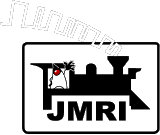Hardware Setup Support: Using a USB-to-Serial Adapter
If your model railroad hardware is supposed to connect to a computer via a traditional RS232 serial connection, but your computer doesn't have any RS232 ports, what do you do? This is becoming more common as computers since 2000 are sold with USB ports instead of RS232 serial ports.
Supported Hardware
- One solution is to use a "USB-to-Serial" Adapter to solve this. A typical unit is the Keyspan USA-19HS series of adapters by Tripplite. We recommend these Keyspan adapters; we use a Keyspan 19-series adapter during the release testing, and have found them to work reliably in all cases so far.
- Other companies, such as Belkin, market adapters under their own name, and you can often also find off-brand adapters at your local computer store for as little as $10.
Before you buy any adapter, make sure that it will work with your particular computer and operating system version. The important issue here is the "drivers" the computer needs to talk to the hardware adapter; many adapter manufacturers only provide Windows drivers, which makes their products useless to a Macintosh or Linux user. Also note that MacOS 8/9 and OS X drivers are different, and can't be interchanged.
Many DCC systems don't require very much of their serial ports, and in that case any adapter will probably work. But some DCC systems require either special baud rates and/or RS232 control leads that not all adapters can provide. The rest of this page addresses those special cases.
Connecting
LocoNet via MS100 adapter
Note that using a LocoBuffer is highly recommended instead of trying to get a MS100 to work!
The MS100 requires a special baud rate that most USB to serial adapters can't provide. It also requires power to be supplied via the RS232 control leads.The Keyspan 19HS adapters are known to work with the
MS100. We've gotten reports of success from Windows 98,
Windows XP, and MacOS 9 users.
(Note that the MS100 does NOT work with Mac OS X and many
Windows Vista machines; this is not a USB Adapter issue)
You'll have to get a special cable to connect the 9-pin connector on the Keyspan adapter to the 25-pin connector on the MS100.
There are other Keyspan USB Adapter models that are known to NOT work with the MS100. In particular, the Macintosh Dual Serial adapter which provides two Macintosh DIN-8 serial ports does not provide the power needed by the MS100. (More details)
Users have reported that a Belkin adapter wouldn't work with a MS100 because it could not provide the special baud rate needed.
LocoNet via LocoBuffer, LocoBuffer-II
If you haven't yet purchased a LocoBuffer, you're best bet is ordering a LocoBuffer-USB from RR-Cirkits This has a native USB connection to your computer, so no USB-to-Serial adapter is needed.
For reliable operation, the serial LocoBuffer interfaces require that the RS232 control leads provide flow control.
Keyspan USB-to-Serial Adapters are also known to work with the LocoBuffer. We've gotten reports of success from Windows 98, Windows ME, Windows XP and Mac OS X users. You'll have to get a special cable to connect the 9-pin connector on the Keyspan adapter to the 25-pin connector on the original LocoBuffer; later models have a 9-pin serial connector.
We have also had a report that the "IConcepts" adapter, purchased at CompUSA, works with Windows ME and Windows XP.
All adapters based on the "FTDI FT232BM chip" should work fine. This includes the UN8E adapter provided by RR-Cirkits, and many do-it-yourself adapters. If you're using this adapter with a Macintosh or Linux computer, be sure to download the most recent drivers from the FTDI website, as early versions had bugs.
XpressNet via LI100
For reliable operation, the LI100 XpressNet interface requires that the RS232 control leads provide flow control.
The Keyspan adapters are known to work with the LI100. We've gotten reports of success from Windows 98, Windows XP, MacOS 9 and OS X users.
XpressNet via LI101
For reliable operation, the LI101 XpressNet interface requires that the RS232 control leads provide flow control.
As yet, we've received no reports or success or failure from people using an LI101 with a USB to serial adapter. More information would be greatly appreciated.
